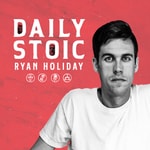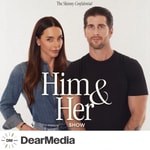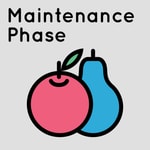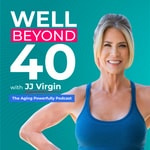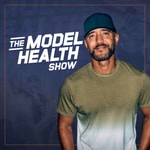Live Long and Well with Dr. Bobby – Details, episodes & analysis
Podcast details
Technical and general information from the podcast's RSS feed.
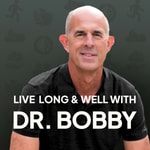
Live Long and Well with Dr. Bobby
Dr. Bobby Dubois
Frequency: 1 episode/11d. Total Eps: 39

Let's explore how you can Live Long and Well with six evidence based pillars: exercise, good sleep, proper nutrition, mind-body activities, exposure to heat/cold, and social relationships. I am a physician scientist, Ironman Triathlete, and have a passion for helping others achieve their best self.
Recent rankings
Latest chart positions across Apple Podcasts and Spotify rankings.
Apple Podcasts
🇺🇸 USA - healthAndFitness
21/05/2025#100🇺🇸 USA - healthAndFitness
20/05/2025#65🇺🇸 USA - healthAndFitness
19/05/2025#56🇺🇸 USA - healthAndFitness
18/05/2025#47🇺🇸 USA - healthAndFitness
17/05/2025#73🇺🇸 USA - healthAndFitness
16/05/2025#59🇺🇸 USA - healthAndFitness
15/05/2025#51🇺🇸 USA - healthAndFitness
14/05/2025#44🇺🇸 USA - healthAndFitness
13/05/2025#62🇺🇸 USA - healthAndFitness
02/05/2025#61
Spotify
No recent rankings available
Shared links between episodes and podcasts
Links found in episode descriptions and other podcasts that share them.
See allRSS feed quality and score
Technical evaluation of the podcast's RSS feed quality and structure.
See allScore global : 78%
Publication history
Monthly episode publishing history over the past years.
#36 Microbiome: Fountain of Health? Or We Just Don't Know
Season 1 · Episode 36
jeudi 24 avril 2025 • Duration 35:18
Please answer a few questions to help my podcast
The microbiome receives lots of attention, but what do we really know? In this episode, Dr. Bobby unpacks whether your gut bacteria are truly the key to preventing disease—or if the science still needs to catch up.
Microbiome buzz is everywhere—from promises of inflammation relief and weight loss to claims about mental health and longevity. But what does the research actually say? Dr. Bobby begins with four essential questions: Is the microbiome important? Does it change based on our habits? Do those changes cause disease? And can restoring it improve our health?
Using his open-minded skeptic lens, Dr. Bobby explains that while mouse studies offer compelling clues—like the famous “fat mouse, skinny poop” experiments showing weight gain linked to microbiome transplants—the same effects haven’t translated reliably in humans. A rare exception is C. difficile colitis. Here, fecal transplants have up to a 90% success rate, with medical societies endorsing this approach (source).
For other conditions like diabetes, rheumatoid arthritis, and Crohn’s disease, microbiome disruptions are well-documented. Still, whether these disruptions cause the illness—or are just innocent bystanders—is unclear. In diabetes, for instance, small studies and reviews show possible improvement in insulin sensitivity after fecal transplants (source) and mixed outcomes with probiotics (source), but nothing rivals the proven power of standard therapies like metformin.
Dr. Bobby also explores whether lifestyle choices—such as eating more fermented foods, fiber, and taking probiotics—can truly “reset” your microbiome and keep us healthy. The answer? These may enhance diversity and gut health, but current data doesn’t yet confirm long-term disease prevention. He references findings from the NIH Human Microbiome Project (source) and other studies showing how gut bacteria influence immune development, vitamin production, and digestion (source).
He also touches on terminology: probiotics are live bacteria (think yogurt and kombucha), prebiotics are their food (found in beans and whole grains), and postbiotics are beneficial byproducts. Each plays a role, but their direct impact on human disease remains uncertain.
Dr. Bobby closes with this: he enjoys homemade yogurt and sauerkraut, but doesn’t chase expensive probiotic supplements. “It can’t hurt and might help,” he says—but don’t expect probiotics to fully replace conventional treatment. As research evolves, he’ll continue to watch the space closely—and encourages listeners to let him know if this type of deep-dive, still-unsettled topic resonates.
Takeaways:
- Fecal transplants are a proven, effective microbiome treatment—for C. difficile, not for general wellness.
- Most microbiome buzz comes from animal studies, and evidence in humans is still preliminary and inconsistent.
- Eating more fiber and fermented foods likely supports gut health, but won’t replace proven medical treatments.
Complete Dr. Bobby’s feedback survey here to help shape future episodes.
Can flossing reduce your risk of a stroke?
Season 1 · Episode 35
mardi 15 avril 2025 • Duration 27:13
Can you provide feedback on my podcast (what you like? what you want more of? length? Please answer a few questions here.
Can a simple habit like flossing really reduce your risk of stroke? In this episode, Dr. Bobby unpacks the headlines sparked by a recent presentation at the American Stroke Association’s International Conference that claimed regular flossing could reduce stroke risk by 20–50%.
Dr. Bobby begins with a refresher on the importance of stroke prevention. From there, he explores the biological plausibility of a connection between oral health and cardiovascular events. While Americans are fairly diligent about brushing (with 90% brushing once daily and 60% brushing twice a day per YouGov data), flossing habits lag significantly (NIH Oral Health Study—highlighting a clear opportunity if the flossing-stroke link is real.
Dr. Bobby dives into the study behind the headlines, a new analysis from the long-running Atherosclerosis Risk in Communities (ARIC) study, which tracked over 6,000 individuals for 25 years. The preliminary finding: regular flossers had significantly lower risk of ischemic and cardioembolic strokes (Study Abstract). Surprisingly, brushing and dental visits showed no significant benefit in this analysis.
So why isn’t this flossing-stroke connection headline a "five-alarm fire" in medicine? Dr. Bobby explains the limitations: the results were shared via a conference abstract, not a peer-reviewed journal article. Without full access to the data or understanding how many other hypotheses were tested from this large dataset (which has already generated over 2,300 publications), we risk falling into the trap of correlation being mistaken for causation.
To further evaluate the credibility of this association, Dr. Bobby introduces the Bradford Hill criteria—nine principles to assess causality in observational studies. While the biological plausibility is strong and the effect size notable, the study fails on criteria like replication, dose-response, and publication rigor (Bradford Hill Overview).
In closing, Dr. Bobby affirms the benefits of flossing—not necessarily for stroke prevention, but for better oral health, which is valuable in its own right. He shares his personal oral care routine, including flossing nightly and using a water jet, while reminding listeners to stay evidence-informed in their health decisions.
Takeaways
Flossing likely improves oral health, but its role in stroke prevention remains unproven.
Be cautious with headlines drawn from unpublished conference abstracts—they’re a starting point for inquiry, not a reason to change behavior just yet.
"How to Live Long and Well" at DrBobbyLiveLongAndWell.com.
#26: New Year’s Resolutions That Work: Personalization and Evidence-Based Strategies
Season 1 · Episode 26
mardi 7 janvier 2025 • Duration 29:34
Take the Health Type Quiz
Do you want 2025 to finally be the year you set and achieve your New Year's Resolutions? Want to avoid the traps and pitfalls that keep most people from the finish line?
In this episode, I will discuss effective strategies for setting and achieving New Year's resolutions, particularly focusing on health-related goals but can be used in any important area of life. I will present to you a six-step approach that includes assessing one's baseline, developing focus areas, setting specific and positive goals, building support systems, and refining resolutions as needed.
This episode will give you a chance to personalize these strategies and are research backed so you'll get the best of both worlds to achieve your goals this year. Below the time stamps are a detailed explanation of each step so you can follow along and listen at the same time.
----------
Step 1: Assess Your Baseline: Holistically assess and reflect on your life. Take your time here as it will make a huge difference in the later steps. Below are some examples and guidelines for this step.
- How are you doing with the 6 pillars: Exercise, Sleep, Nutrition, Mind-Body Harmony, Exposure to Heat/Cold, and Social Relationships
- Assess Your Risk Factor Profile: Metrics including blood pressure, smoking, weight, diabetes, alcohol consumption.
- Preventive Care: getting screening/vaccines.
- Health Type: Knowing your health type and personalizing this process to you.
Step 2: Develop A List of Possible Areas: Make this list as long as you want as we will prioritize and shorten in an upcoming step.
Step 3: Set Your Goals/Resolutions: Set a small number of the most important goals to you on your list and create them in a positive light with additions to your life rather than negatives to stop.
Step 4: Create Your N of 1 Monitoring Approach: Measure your baseline, start the intervention, and measure progress.
Step 5: Build Your Infrastructure of Support: Get support both from external factors (trainers, friends, etc) along with internal habits and tracking.
Step 6: Refine As Needed: You'll probably find you will need to make adjustments along the way and not only is that completely okay but that is expected.
----------
Research Mentioned In Episode:
1. New Year's Resolution Marist Poll
2. UK New Year's Study
3. Swedish New Year's Study
4. Health As #1 Intended Resolution
5. Gym Membership Lapse Statistic
6. 2 Year New Year's Resolution Study
7. Resolutions vs No Resolutions Study
8. Positive vs Negative Resolution Study
9. Concern For Others Scoring
10. Refining Resolutions and Slips
----------
Work with Dr. Bobby: https:
#25: From Evidence to Action: A Dialogue with Health Coach Sean McDevitt
Season 1 · Episode 25
jeudi 19 décembre 2024 • Duration 27:59
Take the Health Type Quiz
Knowing the science is important but implementing it is where the magic happens. Unlock the secrets to transforming your health by bridging the gap between evidence and action with insights from health coach Sean McDevitt.
Sean is a Health and Life Coach, Author of Hack Your Health, and Co-Founder of DLDNation which has helped over 5,000 individuals get fit sustainably.
In this episode, we'll discover how to turn knowledge into practice as we explore the key to setting and achieving manageable health goals. Sean brings his expertise to the table, offering strategies to overcome common barriers, while emphasizing the crucial 'why' behind health advice.
Together, we tackle the all-or-nothing mindset and highlight the power of self-compassion, drawing inspiration from Kobe Bryant's philosophy of focusing on the journey rather than just the destination.
We also explore how fitness can serve as a gateway to a more comprehensive wellness journey. Sean shares how clients often start with fitness and expand into other health domains like nutrition, sleep, and stress management.
We'll also learn the importance of experimenting with various wellness practices and the role of education and support in fostering lasting change.
By establishing baselines and conducting regular self-assessments, you'll be empowered to recognize patterns, make informed adjustments, and ultimately achieve a holistic approach to a healthier, more fulfilling life.
Time Stamps:
(2:30) First Interview On The Show
(3:20) Sean’s Background
(6:35) Avoiding Overwhelm
(7:20) Guiding Clients Through Roadblocks and The All Or Nothing Mindset
(10:50) Good vs Bad New Years Resolutions
(12:25) Being Processed Oriented
(14:05) Pushing Through Being Tired or Prioritize Sleep?
(19:30) Stress Relief Tactics
(20:56) Tracking Client Progress
(23:47) Sean’s Favorite Quotes
(26:14) Where To Find Sean
(27:00) Let Me Know If You Enjoyed This Episode
----------
Follow Sean On Instagram
----------
Take My Health Archtype Quiz On My Website
#24: Alcohol: Little or None? That Is The Question
Season 1 · Episode 24
jeudi 12 décembre 2024 • Duration 33:24
Link to Health Type Quiz
Link to Living Well, Aging Strong 6-month group experience
As the holiday season approaches, the question of how much alcohol is too much becomes ever more pressing. What if the festive cheer of a drink or two could be clouded by the potential for long-term health risks?
Dr. Bobby unpacks the complex and often contradictory research around alcohol, helping listeners navigate the decision: is it best to have none, or is a little okay? By exploring the impacts of alcohol on weight/appetite, heart disease, cancer, sleep, and cognitive health, and by considering personal health types, listeners can make more informed choices about their drinking habits.
Key Topics Covered:
- Conflicting Headlines and Research:
Discussing the confusion around alcohol’s health effects, from Gallup poll insights to studies highlighting both potential benefits and risks.
Health Risks Explored:
Weight Gain: Alcohol adds calories and increases appetite, contributing to potential weight gain (study on caloric intake).
Heart Disease: Early studies suggested moderate benefits for small amounts of alcohol, but advanced analyses, like Mendelian randomization, challenge this assumption, not showing a protective effect (study on genetic analysis).
Cancer Risks: Alcohol consumption has been linked to several cancers, including breast and colon cancer. (WHO fact sheet).
Sleep Impacts: Alcohol disrupts sleep quality, even if consumed earlier in the day (small study on sleep effects).
Cognitive Decline: Even mild drinking shows potential risks for brain health, with larger consumption exacerbating damage (UK Biobank study).
Defining Drinking Levels:
Categories from non-drinker to heavy drinking were clarified, helping listeners identify where they stand (National Survey on Drug Use and Health).
Personal Stories and Practical Decisions:
Dr. Bobby shares his personal experience with holiday indulgence and offers practical strategies for mindful drinking.
Role of Health Types:
Leveraging your health archetype (e.g., Purposeful Path Planner or Contentment Creator) to guide decisions about alcohol consumption.
Takeaways:
Know Your Limits: For most, keeping alcohol under seven drinks per week minimizes risks without eliminating enjoyment.
As we navigate the complexities of alcohol's impact on health, I share my personal approach of allowing myself up to seven drinks a week, accepting some level of risk for the sake of balance. With the Living Well Aging Strong program, we provide tools to create personalized health plans, empowering you to make choices that align with your lifestyle. Let's embark on this journey together, equipped with knowledge and support, as we strive for imp
#23: Longevity Highlights: Key Takeaways from the 6 Pillars
Season 1 · Episode 23
mardi 3 décembre 2024 • Duration 17:11
In this special episode of Live Long and Well, I’m introducing two exciting updates:
- Now on YouTube – You can watch this episode with engaging visuals, graphs, and clips.
- Longevity Highlights Segment – This episode begins a new series where I summarize key takeaways from previous episodes to reinforce critical lessons and practical tips.
Take the Health Type Quiz
Why Longevity Highlights?
We’ve covered a wealth of information in 22 episodes! Research suggests that repetition strengthens memory, especially when we discuss or teach what we learn. Let’s revisit the essential pillars for a healthier, longer life.
The Six Pillars to Live Long and Well
- Exercise (Episode 2)
- Why it matters: Reduces mortality risk by 20%+, lowers cancer and Alzheimer’s risks, and improves overall functionality.
- Practical tips:
- Aim for 150–300 minutes of aerobic exercise per week.
- Incorporate strength training 1–2 times weekly.
- Add balance and flexibility exercises and try high-intensity workouts weekly.
- Sleep (Episode 3)
- Why it matters: Sleep under 7 hours impacts mortality, memory, and energy.
- Practical tips:
- Keep a consistent bedtime.
- Avoid alcohol and heavy meals before sleep.
- Create a cool, comfortable sleep environment and get early sunlight exposure.
- Nutrition (Episode 4)
- Why it matters: Supports weight management and overall health.
- Practical tips:
- Focus on maintaining a healthy weight.
- All diets work...until they don't...no magic approach; experiment with what works for you (e.g., intermittent fasting or balanced macros).
- Prioritize protein intake.
- Mind-Body Harmony (Episode 5)
- Why it matters: Reduces stress and promotes emotional well-being.
- Practical tips:
- Spend time in nature.
- Practice regular breathwork, yoga, or meditation.
- Exposure to Heat and Cold (Episode 6)
- Why it matters: Enhances cardiovascular and mental health.
- Practical tips:
- Sauna: 20 minutes, 3 times weekly.
- Cold plunges or cold showers for a few minutes to boost mood.
- Social Relationships (Episode 7)
- Why it matters: Strong social connections predict longevity and functionality.
- Practical tips:
- Invest in friendships and add younger friends to your circle.
Final Thoughts
Let me know if these highlights are helpful. If you haven’t already, take the Live Long & Well Quiz on my website to learn which archetype best fits your health style. Want to work with me more closely? Visit drbobblivelongandwell.com.
Call to Action
- Watch on YouTube or listen on your favorite platform.
- Take the Live Long and Well Quiz
- Leave a review and share this episode with someone who could benefit.
- If you wish to work with me directly, link here; we are starting a Mastermind Workshop early 2025-the Live Long and Well Jumpstart.
- Until next time, let’s
#22: Health Headlines: Helpful? Harmful? Or Just Plain Confusing?
Season 1 · Episode 22
jeudi 21 novembre 2024 • Duration 35:19
In this episode, Dr. Bobby tackles the often perplexing world of health headlines. From bold claims about intermittent fasting to the benefits of wearing socks to bed, he breaks down how to evaluate these headlines critically. With nine key questions to ask about a headline, insights into the hierarchy of evidence, and two practical examples, Dr. Bobby provides listeners with tools to discern fact from fiction in health journalism.
And, your Health Type influences how you might use information. Take the Health Quiz
Join the Mastermind Workshop Waitlist here: the Live Long and Well Jumpstart
Key Topics Covered:
- Understanding Health Headlines:
- Should you believe a health headline? How do you decide whether it is likely to be true, or not adequately based upon evidence?
- Common examples of sensational headlines and their flaws.
- Nine Essential Questions to Evaluate Headlines:
- Is the article published in a reputable outlet by a science writer?
- Was the headline based on actual scientific studies or just an expert's opinion?
- Is the study published in a peer-reviewed journal, or was it just presented at a meeting?
- What journal was it published in, and what is its impact factor?
- Who conducted the study, and where?
- How large was the study population?
- What type of study was it? (Randomized controlled trial vs. observational vs. model-based.)
- Was there an editorial discussing the study’s limitations?
- Does the headline sound "too good to be true"?
- Hierarchy of Evidence:
- From most likely credible to least likelycredible:
- Meta-analyses.
- Randomized controlled trials (RCTs).
- Observational studies.
- Case series.
- Expert guidelines.
- Individual expert opinions.
- Explanation of each and when to trust them.
- From most likely credible to least likelycredible:
- Examples of Health Studies:
- Intermittent Fasting and Heart Risk: Why the headline about a 91% increased risk of death was flawed.
- Meal Replacement Shakes: Insights from a Chinese randomized trial and its limitations.
- The Problem of Data Manipulation (P-Hacking):
- How over-analysis of databases can lead to misleading conclusions.
- The importance of recognizing correlation vs. causation in studies.
Takeaways for Listeners:
- Use the 9 Questions Framework to critically evaluate health headlines and articles.
- Understand that the type of study (e.g., RCT vs. observational) significantly impacts its credibility.
- Remember that sensational headlines often oversimplify or distort study findings.
- Stay skeptical of small studies or ones with vague methodologies.
Engage with Dr. Bobby:
- Have a confusing health headline you’d like Dr. Bobby to analyze? Send it in!
- Take the health type quiz at DrBobbyLiveLongAndWell.com to better understand how your approach to wellness influences your perception of health information.
- Don’t forget to leave a review on Apple Podcasts, Spotify, or wherever you listen!
#21: What Is Your Health Type And Why Does It Matter?
Season 1 · Episode 21
mardi 12 novembre 2024 • Duration 25:47
In this episode, I dive into a new way to think about wellness—your unique Health Type. Unlike traditional advice that tells us what to do to stay healthy, I explore how we approach our health, which is just as crucial for long-term well-being. By understanding your personal Health Type, you can make lifestyle choices that align with who you are, making it easier to stick to routines and prioritize what truly benefits you.
Take the Health Type Quiz here:
Join the Mastermind Workshop Waitlist here: the Live Long and Well Jumpstart
Key Points:
- The Concept of Health Types: Just as each person has unique health goals, we also have unique ways of approaching health. Understanding your Health Type helps tailor your wellness plan to suit your personality, motivations, and lifestyle.
- Why Health Type Matters: Whether you’re driven by evidence, need simplicity, or seek balance between life and wellness, knowing your type allows you to set realistic and sustainable health goals. It's not one-size-fits-all; it’s about finding what works for you.
- Introducing the Five Health Types:
- Holistic Health Hacker - Comprehensive, curious, and often data-driven, these individuals optimize every area of health.
- Single-Minded Achiever - Focused on specific areas (e.g., fitness or nutrition) but may overlook other health aspects.
- Purposeful Path Planner - Knowledge-seekers who can feel overwhelmed by too many health options and may struggle with decision paralysis.
- Contentment Creator - Health needs to fit around their lifestyle, valuing balance and ease.
- Hopeful Health Seeker - Persistent, often dealing with chronic issues or setbacks, and needing encouragement and support.
- Health Types Are Fluid: Your Health Type isn’t static; it can change with life events, new health challenges, or aging. Recognizing this flexibility can help you adapt when your approach to health needs to shift.
- Take the Quiz: To identify your Health Type, try the quiz at DrBobbyLiveLongAndWell.com. This quick quiz provides personalized insights and recommendations based on your unique approach to health.
Key Takeaways:
- Discovering your Health Type can make wellness more attainable and enjoyable, helping you make informed choices that fit your life.
- Embrace flexibility in your wellness journey—health needs can evolve, and understanding this can help you support yourself and others.
- Start by taking the quiz to gain clarity on your Health Type and apply its insights to live long and well.
For more personalized guidance, resources, and episode recommendations based on your Health Type, make sure to visit the website and let me know your thoughts. Let’s take this journey together toward a healthier, more fulfilling life.
Join the Mastermind Workshop Waitlist here: the Live Long and Well Jumpstart
#20: Are You Happy With Your Doctor? What Might Make It Better?
Season 1 · Episode 20
mardi 5 novembre 2024 • Duration 36:16
Managing your health is a team effort, and partnering with a good doctor is essential. We’ll explore what defines a productive visit and a meaningful doctor-patient relationship. Today, it is typical to wait weeks to see your primary care doctor and months to get a specialist visit.
1. Why You Visit Your Doctor: Different Types of Visits
- New Symptoms: When you’re feeling unwell and need answers.
- Ongoing Care: Managing chronic conditions like high blood pressure.
- Annual Check-ups: Routine screenings and vaccinations.
- Referrals: Accessing specialized care when necessary.
- Building a Relationship: Establishing trust with your doctor, which is crucial for long-term care.
2. What Makes a “Good” Doctor?
- Qualities to consider: clinical expertise, communication skills (ability to explain, to listen, to focus on you), empathy, and whether they take a holistic view.
- The role of the doctor as a “quarterback” who coordinates all aspects of your care.
3. Considering the Doctor’s Office and System
- Factors like insurance networks, appointment scheduling, and the ability to connect with your doctor’s office between visits.
- Importance of a patient portal for streamlined communication and easy access to test results.
4. How to Find a New Doctor if Needed
- asking for recommendations from other doctors or trusted medical professionals.
- Utilizing reviews, training history, and online directories to narrow your search.
5. Preparing for a Doctor’s Visit
- How to make the most of your visit by sending questions in advance and understanding the doctor’s time constraints.
- Practical tips on handling additional questions and arranging follow-up visits to maximize care without overwhelming the appointment time.
- Consider telehealth visits for ongoing care or to have time to ask additional questions
7. Should You Consider a Concierge Doctor?
- Explanation of concierge practices and the benefits they offer, such as longer appointment times, same-day availability, and personalized care.
- Pros and cons of concierge medicine, especially for patients seeking more accessible and comprehensive care.
Key Takeaways
- Enhancing Your Doctor Visits: By preparing ahead and understanding your doctor’s time constraints, you can improve the quality of your visits and be able to answer the question that you are happy with your doctor.
#19: Seed Oils: True Harm Or Just Another Food Fear Fad?
Season 1 · Episode 19
lundi 21 octobre 2024 • Duration 37:59
Are seed oils the dietary villain social media makes them out to be, or is this just another food fear fad? Join me, Dr. Bobby Dubois, as I unravel the truths and myths surrounding seed oils like canola and safflower.
There are NO randomized clinical trials comparing people who eat a diet with seed oils vs a diet consisting of non-seed oils like avocado, coconut, or olive. Since we lack the key studies that we desire, I explore the topic based upon the following questions:
- Are corn, peanuts, and the vegetables that produce these seed oils bad for you? (no evidence to support this concern)
- Is the problem getting the oils out of these good vegetables (the extraction and denaturing process)? Likely not.
- Is it the contents of the seed oils themselves harmful (e.g., the omega 6 polyunsaturated fats)? Our bodies need omega 6s and the studies that switch folks from saturated fats to seed oils show no risk of heart disease (and maybe the opposite). No evidence they they raise markers of body inflammation, and don't increase the risk of diabetes.
- Is the harm related to the heating of the seed oils? Heating seed oils can produce potentially harmful compounds, but so does grilling a steak or salmon.
- How much seed oil do we consume as we cook food? Not a lot. 70% of the fat we eat comes from meat (fish, beef, chicken) and not added oils.
- Are we blaming the wrong food? Likely this is the key issue as cheap seed oils led to the production of yummy, highly processed, calorie dense foods. And the problem lies there....
- Avocado or olive oil costs 5 times what canola/corn oil costs. Is it worth the cost to switch from seed oils to these non-seed oils? A
Take-home messages:
- i don't fear seed oils
- where they can be a concern is reusing oils over and over in a deep fat fryer where potentially worrisome compounds can accumulate
- If you have symptoms that bother you, perhaps do an N-of-1 trial of removing them from your diet.





